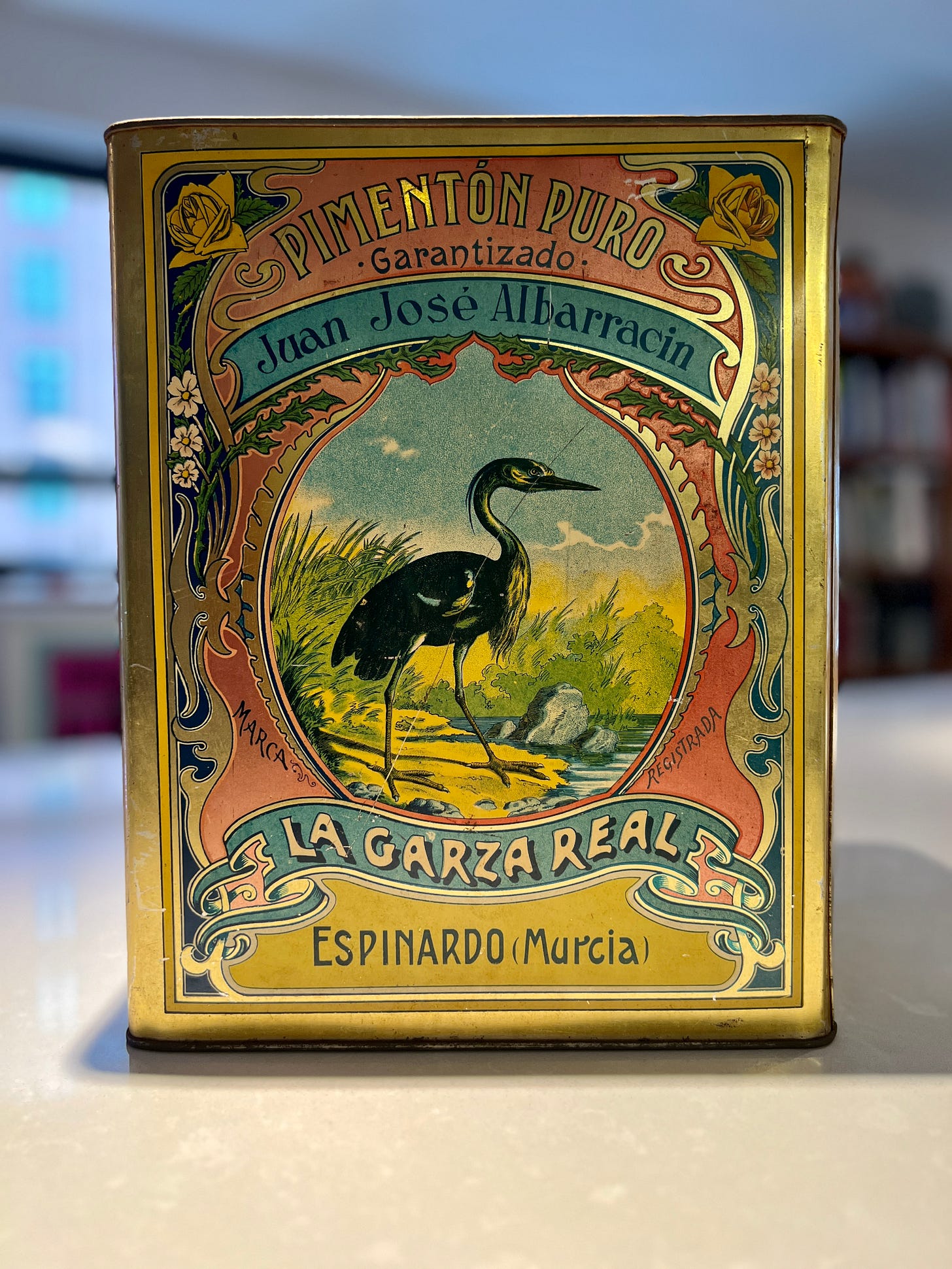An ingredient more valuable to me than black pepper
It's sweet, smoky, and I use it everywhere!
I wanted to tell you all today about one of my absolute favorite ingredients in the kitchen…pimentón. Maybe you would call it paprika, depending on where you come from, but where I’m from we only know it as pimentón.
Have you ever used it? If you’ve made many of the Spanish recipes I’ve shared here, you have! The very famous bean stew of Fabada Asturiana, from my home region of Asturias, is flavored with it. The sweet, smoky romesco sauce, which can be served with anything from Asparagus to Zucchini, gets an amazing smokiness from pimentón. Remember that we just talked about the dish Pulpo a la Gallega…of course that one uses pimentón. My mother’s recipe for lentil stew uses two whole tablespoons of it! Even my boiled vegetables (which you thought was pretty controversial!) uses it.
So what is it and why is it so sacred to Spaniards?
Well, the story doesn’t start in Spain. You probably know that all peppers are native to the Americas and were first cultivated in Mexico 9,000 years ago—did you know that the word “chili” is actually a Nahuatl word in its origin?
Then, of course, the Genoese Cristoforo Colombo—you would know him as Christopher Columbus—came to the Americas, sent by the Spanish king and queen, and brought back with him products (as well as leaving many, many terrible things, including the ultimate destruction of many native communities across the hemisphere…). Pepper seeds were one of the things his crew brought back across the Atlantic.
Once peppers reached Spain, they found their place in the region of Extremadura, in the country’s southwest. Monks would grow them on the grounds of their monasteries and use them in their own cooking. I have to tell you, us Spaniards don’t have a high tolerance for spicy foods (black pepper is too hot for a lot of Spanish people!) so there was a desire to breed sweeter peppers than many of the ones that had come over from the Americas.
The best sweet peppers started to be grown in the small town called La Vera in Extremadura, and along the way technique was developed to preserve the peppers by drying them with smoke—creating the smoky-sweet product we call pimentón. It spread throughout Spain (and beyond, of course—the Hungarians are famous for their love of paprika!), and by the 19th century, the great Spanish food writer Ángel Muro called pimentón had become a necessity for most Spaniards, “like salt or oil.”
The best pimentón still comes from that small town in Extremadura called La Vera, which is why we call it Pimentón de la Vera…it’s actually a PDO, a protected designation of origin, which means that this true pimentón can only be made in the area of La Vera, as a way to recognize and protect the history and traditions of the product. There is also amazing pimentón made on the other side of the country, in the southeastern region of Murcia, which is also a PDO but made differently—it is not smoked like its southwestern cousin and instead is sweet and rich.
So…do you understand now why I have a tin of pimentón on my counter, right next to my bottle of extra virgin olive oil and salt??
Now you’re asking, José, if I’m not cooking Spanish food every day, why would I want to be using pimentón? Well my friend, my first question for you is, Why aren’t you cooking Spanish food every day? Okay okay, I get it. I also don’t cook Spanish every day.
But even if you are cooking food from other cultures, a little bit of pimentón can be an amazing addition. It adds some sweetness, it adds some smokiness (but it’s not TOO smoky like liquid smoke!), I almost think it adds some umami to dishes. For a simple use, I love it sprinkled with some salt on eggs, with a drizzle of olive oil on top. You can add it to any stew or chili for an added layer of rich smokiness. It’s amazing in tomato-based sauces, like pizza or pasta sauce. You should even add it to meat marinades to give it some extra oomph.
There are so many places to use pimentón! What do you guys think, do I overdo it? Or are you on board with me, wanting to put pimentón on everything? Oh … and if you want to try one of my favorite brands of Pimentón de la Vera, check out La Dalia!






Salt, cumin and pimentón on roasted potatoes is the best
Best pimentón ever!. Just a quick tip. drop a little bit in fried egg, It will get an awesome color and super flavor.... just a little bit.